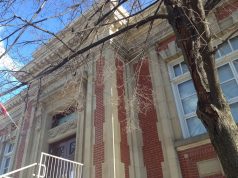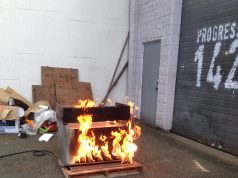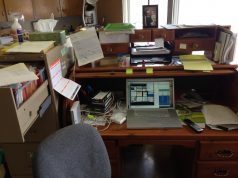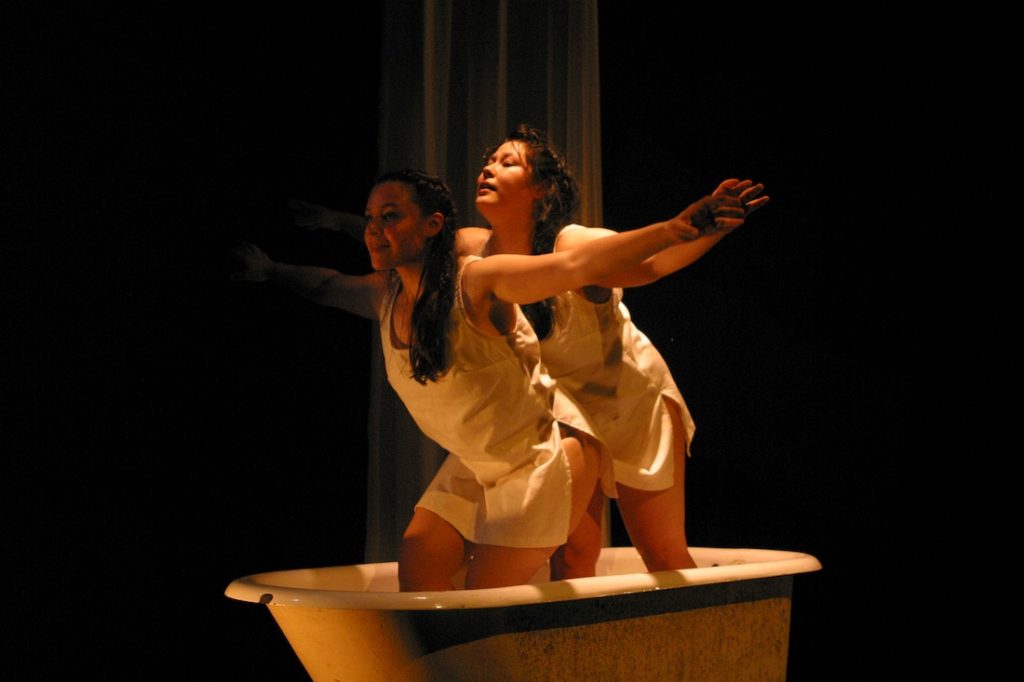
Performers (L to R): Penny Couchie, Julie Tamiko Manning
* World Premiere, Firehall Arts Centre, Vancouver, 2004
This moment is an invitation: An open door leading to a cup of tea and a bowl of homemade soup.
This Moment #1: I am a child, a teen, a young woman, listening to my father speak of our Beginning – how the four corners of the world were folded up and inside all that rolling mud, woman and man were made to walk side by side, as equals; the only difference being that women are the Life Givers. I am made in the image of our Mother who, as the Earth, is responsible to sustain and nourish. My responsibility is to contribute to this cycle of care. Women’s knowledge is sacred; what we know will ensure man’s survival. A woman’s power comes from the earth. Pants interfere with this connection, which is why we wear skirts for ceremony. “In a sense, feminism wrecked women’s relationship to their own power,” my father says sadly. “Men have forgotten their place.”
My introduction to my female-self was ceremonial. My introduction to my artist-self was less about affirming a woman’s power and more about learning to accommodate, acquiesce to, and affirm a euro-driven hierarchy along with phallocentric models of performance, criticism, and theory. The act of melding these ideas into my artistic practice has become a political one. This is a feminist impulse. Each project is an opportunity to address the tension I experience inside this political act.
This Moment #2: I am a woman, one of two artist/ playmakers invited to teach Indigenous performance methods in a small Eastern European country. My colleague, who is established relative to my emerging, is also Cree. It becomes apparent that his intention is to lead. My role seems to be to stand at his side as silent witness. My frustration grows. The day after our second session, we walk as he reflects on what he hopes people learned, what I witnessed, and whether he over-stepped in any way. It hits me: our process in this studio is not just artistic, it is defined by our cultural relationship.
In this scenario, my cultural responsibility as a woman is to ‘hold the room’ – to support my colleague and keep him accountable, and to ensure protocols are followed so that the space is respectful and inclusive. I know this role well – as my father’s Helper. Cultural connections become foremost in defining my artistic process. For people to be equal, they don’t have to be doing the same thing. Our power is different, not ‘more’ or ‘less.’
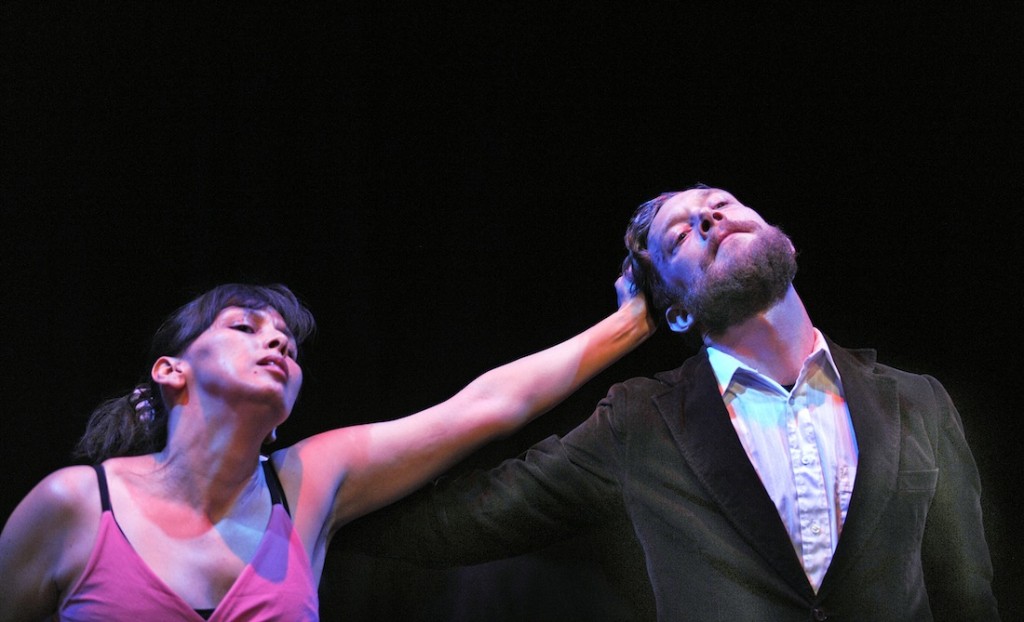
BLAM COLLECTIVE::
Performers: Lisa C. Ravensbergen, Darren Dolynksi
* work-in-progress showing, Talking Stick Festival, Vancouver, 2011. Photo Credit: Chris Randle
Understandings of “feminism” are as non-consensual as understandings of “Indigenous perspectives.” The way feminism reflects itself in my work is as unique as the way I interpret and practice my culture. My feminist art practice exists even if it’s not recognizable or aligns with the normative assumptions about what feminism is. Each project takes me one step farther away from an obligation to measure the worth of my own feminist practice against a politik that does not always feel authentic to my cultural practice.
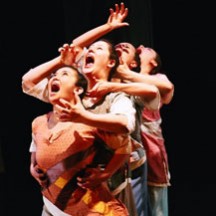
Performers (L to R): Aura Carcueva, Falen Johnson, Maria Christina James, Julie Tamiko Manning
* Native Earth Performing Arts, Toronto, 2007. Photo Credit: Nir Bareket
This Moment #3: I am a mother, a writer in the throes of life, haunted by another draft that isn’t going anywhere. My dramaturg has ridden her bike across town and seventeen blocks up a mountain so she can sit at my table and discuss my play. She sips her tea as I prepare our lunch – a soup that will later warm my family’s bellies. I apologize for everything; for not working fast enough, for ineptly writing simple scenes, for making her wait, for the mess of my house, for the effort it took for her to get here – all so that I can more easily pick my child up from school. We pause. She quietly asks about my writing and process. I tell her about this world of three women I am creating. It is a story of stolen children, lost identities, and a grandmother who is really a lost owl spirit, waiting for redemption. We find this rhythm that works; a ritual guided by the slicing of my knife, by the wiping of my hands, by her tasting of the spices, the stories of my family, the psalms along with my father’s traditional teachings – all in symphony with her internet research. Here I use my knowledge to embody this role now set inside a familiar domestic ceremony – one she and I will return to time and time again over the next year or so. She calls it “kitchen dramaturgy.” I accept this. I see how this now – this too – is my work: to be witnessed in the melding of my living-life and artist-life, as only a woman can.
Our first impulse as creators is to witness. Our primary action is to respond from our artist-selves. In this process, we also name our other-selves – the woman, the woman of colour, the woman empowered. I can support a process as *I* must – as a First Nations woman or not. It means that my work inevitably flips Aristotle the bird. Women speak the words I write, and dance the dreams I tell. Ceremony lies at the root of every question. I mix worldviews in an ancient pot and stir it until the flavours assume their own temper. I discover what I’m making as it’s being made. And I share it as best I can.
Acknowledgements: Walter Cook, Elaine Avila, Heidi Taylor, Dylan Robinson, Jeff Harrison, Isaac Thomas. Chi Miigwetch – Thank you so much for your guidance and assistance.






